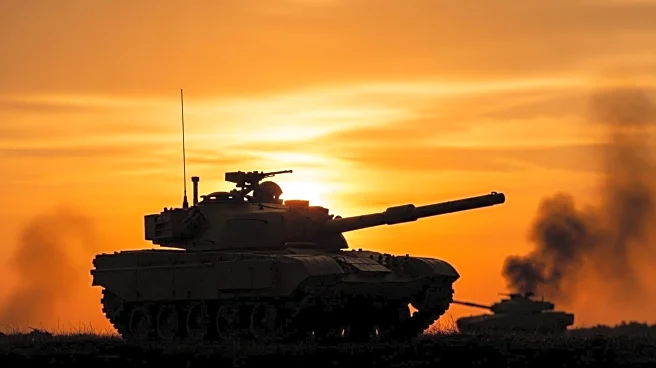What is the story about?
What's Happening?
Iran-backed Iraqi militia groups have intensified attacks on infrastructure in northern and central Iraq, raising tensions as the country approaches its November elections. These attacks, which have targeted key sites such as the Baiji oil refinery and Kirkuk airport, are part of a broader intra-Shia militia competition over economic assets and patronage networks. The Baiji refinery, previously captured by the Islamic State and retaken by Iraqi forces, was recently reopened by Prime Minister Mohammad Shia al-Sudani. The deliberate nature of these strikes suggests an escalation in tactics and messaging by Iran-aligned militia actors like KH, who are involved in commercial disputes and strategic interests in the region.
Why It's Important?
The escalation of militia attacks in Iraq has significant implications for regional stability and security. These actions could disrupt economic activities, particularly in the oil sector, which is vital for Iraq's economy. The involvement of Iran-backed militias highlights the complex geopolitical dynamics at play, potentially affecting U.S. interests and foreign policy in the region. The attacks may also influence the political landscape ahead of the elections, as they underscore the ongoing power struggles and factionalism within Iraq. Stakeholders such as the U.S.-led coalition and Iraqi government are closely monitoring these developments, which could impact diplomatic relations and military strategies.
What's Next?
As tensions rise, the Iraqi government and international stakeholders may increase security measures to protect critical infrastructure and prevent further attacks. The upcoming elections could see heightened political maneuvering and alliances as various factions vie for control. The U.S. and other international actors may engage in diplomatic efforts to stabilize the situation and support Iraq's political process. Additionally, there could be increased scrutiny on Iran's influence in Iraq, potentially leading to policy shifts or sanctions aimed at curbing militia activities.
Beyond the Headlines
The attacks reflect deeper issues of institutional fragmentation and competition among Shia militias, which could have long-term implications for Iraq's governance and economic development. The involvement of external actors, such as Israeli forces, adds another layer of complexity, potentially affecting regional alliances and security dynamics. The situation also raises ethical questions about the use of military force and the impact on civilian populations, highlighting the need for comprehensive conflict resolution strategies.
















